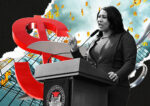San Francisco officials want to revamp the city’s tax system to stem the losses from remote work and aid small business tenants.
The proposed overhaul includes cutting fees on small businesses and office rents, consolidating multiple taxes and shifting to taxes based more heavily on sales rather than the number of workers based in the city, the San Francisco Chronicle reported.
The proposal by outgoing Controller Ben Rosenfield, Treasurer José Cisneros and Chief Economist Ted Egan would require voter approval and could form the basis for a November ballot measure. The recommendations are not expected to change overall tax revenue.
Officials hope to draw more companies and jobs to San Francisco as the city struggles to bounce back from the pandemic.
“Simplifying our business tax structure helps businesses and the city,” Cisneros said in a statement. “These reforms create a tax structure that is clear, fair and promotes economic growth.”
Changes include cutting the commercial rent tax rate by 25 percent and merging the homelessness gross receipts tax with the general gross receipts tax, while preserving funding for homelessness services. The cuts would be offset by a boost in the overall gross receipts tax.
Another recommended change would make it harder for future tax increases to get on the ballot, by increasing the required voter signature threshold. It would also eliminate the ability of the mayor or a minority of the Board of Supervisors to place tax measures before voters.
After a boom decade, San Francisco now confronts an annual budget deficit that could reach $1 billion by 2028. Mayor London Breed has ordered multiple rounds of cuts, according to the Chronicle.
The shortfalls are caused by a shift to remote work led by the city’s tech companies, which have left more than one out of three offices vacant. It also stems from a tax system that makes revenue dependent on big companies.
The work-from-home shift cost the city $484 million in 2021, according to a previous analysis. Breed is up for re-election this year as businesses raise alarms about public safety, street conditions, high taxes and the city’s glacial permitting process for new development.
The new tax recommendations were developed after more than 30 group meetings over five months with local businesses.
— Dana Bartholomew
Read more



